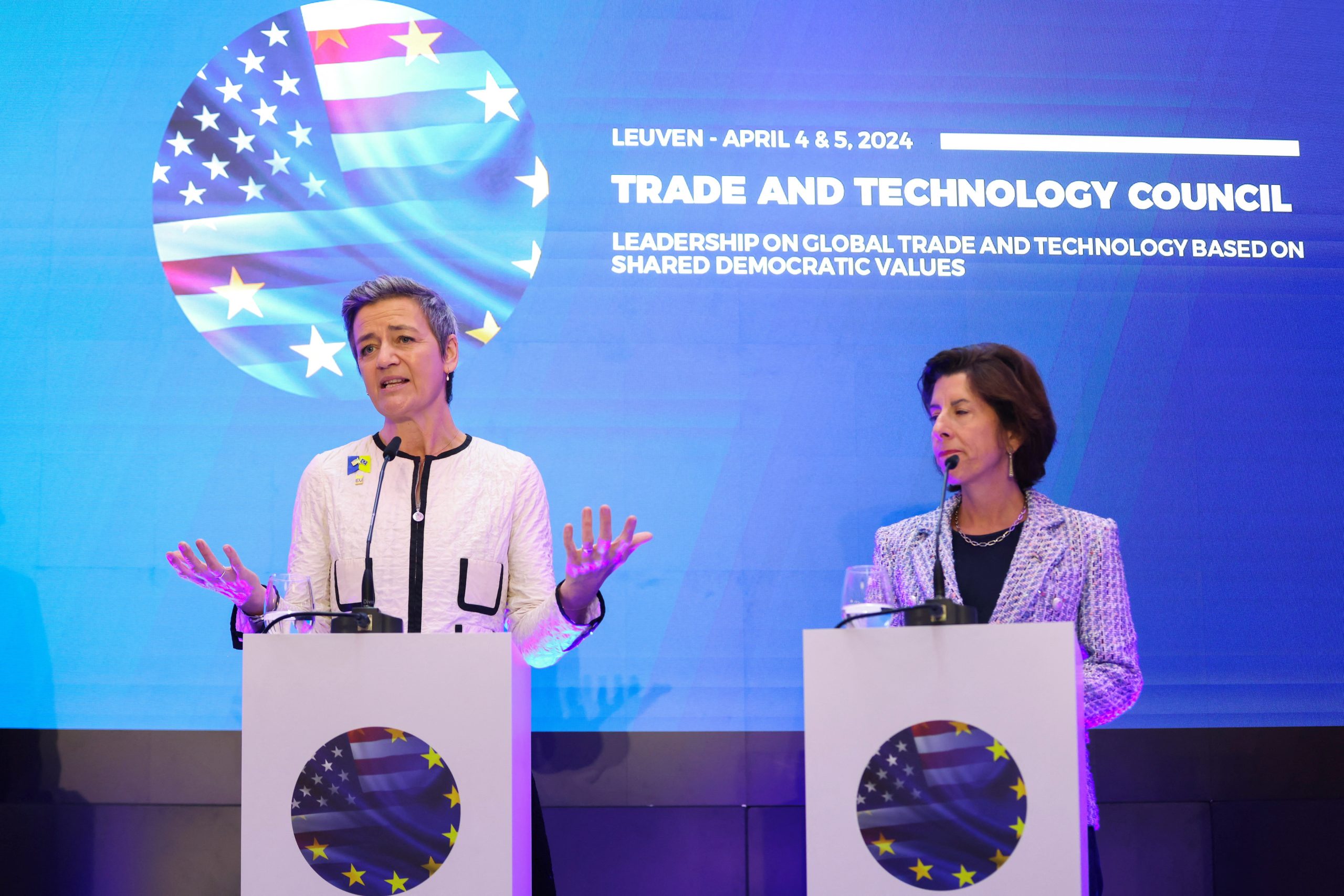American and European leaders met in Belgium for the final TTC summit before the election. Despite some successes, the future of the forum remains uncertain.
Expectations were low. At the January summit in Washington, American and European ministers failed to issue a joint statement. If new nationalist leaders come to power after upcoming elections on both sides of the Atlantic, many wonder if Belgium’s TTC summit will be the last.
Amidst the dark clouds, the summit delivered some potentially successful compromises. But beyond the political fanfare, he ignored major transatlantic trade and technological irritants and made no plans for much-needed structural reforms in the beleaguered forum.
in a informal talk In Belgium, US and EU leaders stressed the importance of maintaining the forum, even after the elections. They expanded their work to include biotechnology and solar energy and agreed to expand existing information-sharing agreements in areas such as semiconductors. Overall, the two sides have worked well to make their ambitious CHIPS laws complementary, not competitive.
Artificial intelligence took center stage at the TTC meeting. The allies updated cooperation on AI terminology and taxonomy and noted advances in research on AI for the public good. Although the EU has moved forward with its own AI Law, while the United States has not legislated so far, the two seem determined to work together to consolidate global leadership.
Get the latest
Sign up to receive regular emails to stay informed about CEPA’s work.
Other advances are worth mentioning. The allies published a 6G joint vision and established a quantum working group. On trade, a new Mineral Security Partnership Forum aims to encourage diversification of critical minerals, and a Joint catalog of best practices for Green Procurement marks the first step in the implementation of the Transatlantic Initiative for Sustainable Trade (TIST).
Despite these achievements, disappointment and doubts persist. These TTC results fail to generate concrete commercial benefits. Roadmaps and principles are light. They may have a positive long-term benefit but little short-term impact.
Huge gaps remain. The two sides again failed to reach an agreement. mutual recognition agreement on green products and offered little clarity on next steps for the TIST work programme. No major business results were announced, beyond a statement on e-invoicing interoperability. The biggest disappointment at the TTC was the failure to reach a Critical Minerals Agreement, much needed to resolve the barriers created by the local content requirements included in the US Inflation Reduction Act.
Stakeholder participation remains weak. High-level executives did not participate. The parliamentarians remained distant. Interested parties were invited only to view the public talk. No workshop or round table was organized with stakeholders and no formal consultation took place.
In their meetings, the leaders avoided discussing structural reforms. There was no mention of the continuation of the TTC after this political cycle, nor of possible changes to its difficult structure, such as reducing the number of working groups or creating a formal secretariat.
Since its launch three years ago, the TTC has helped repair and strengthen the transatlantic relationship. But you have to push it. It is necessary to build a permanent platform. Stakeholder participation must be expanded and real business benefits generated. it’s possible? It’s far from safe. We will have to wait for the next election and see if the TTC can survive and revitalize itself.
Micol Bertolini is Associate Policy Manager for the American Chamber of Commerce for the European Union.
Bandwidth is CEPA’s online magazine dedicated to promoting transatlantic cooperation in technology policy. All opinions are those of the author and do not necessarily represent the position or views of the institutions they represent or the Center for European Policy Analysis.
Read more about Bandwidth
CEPA online magazine dedicated to promoting transatlantic cooperation in technology policy.
Read more
